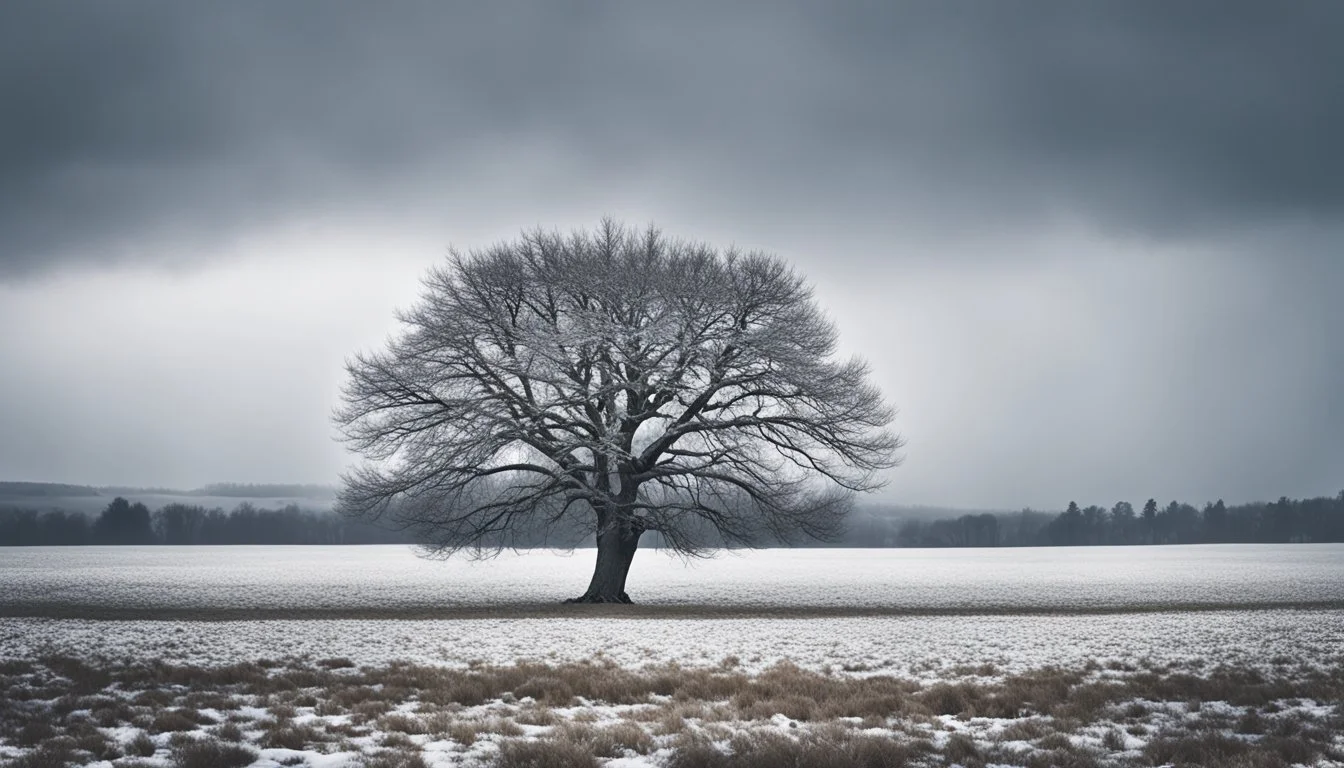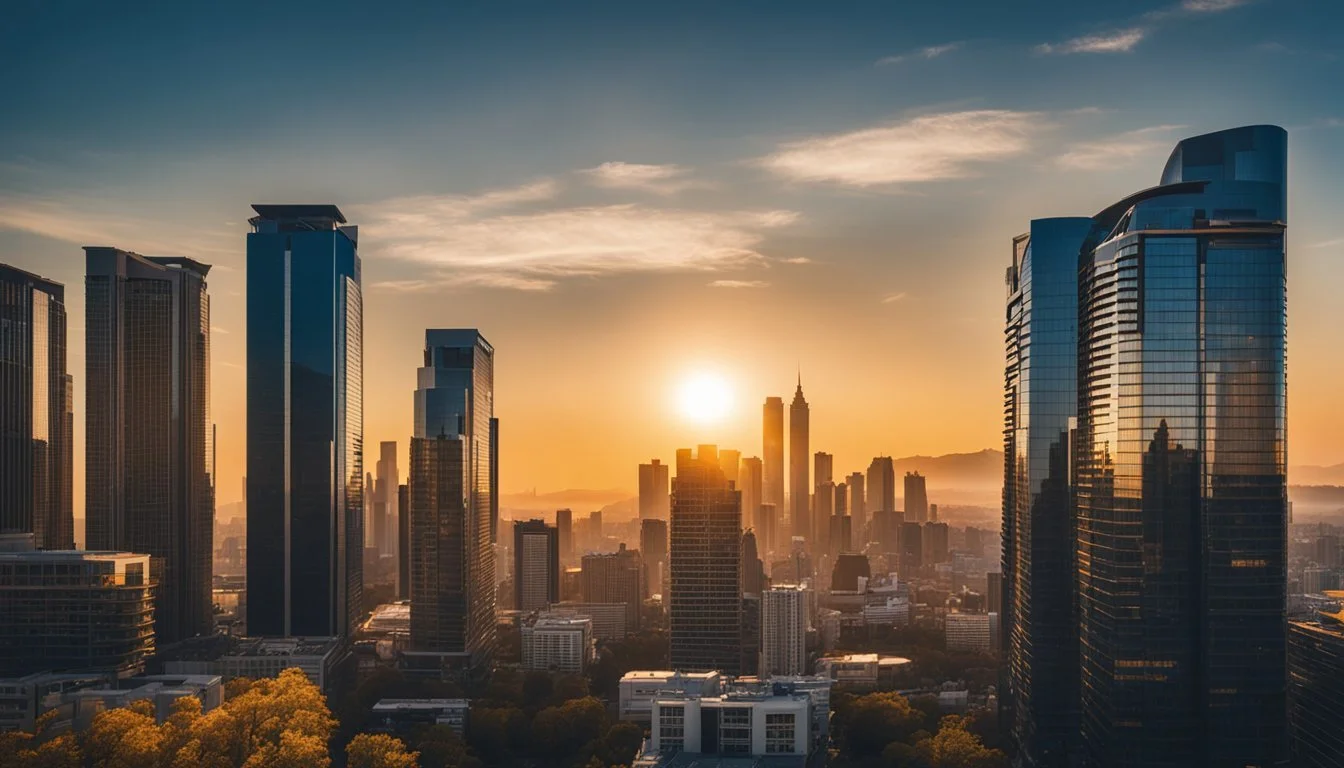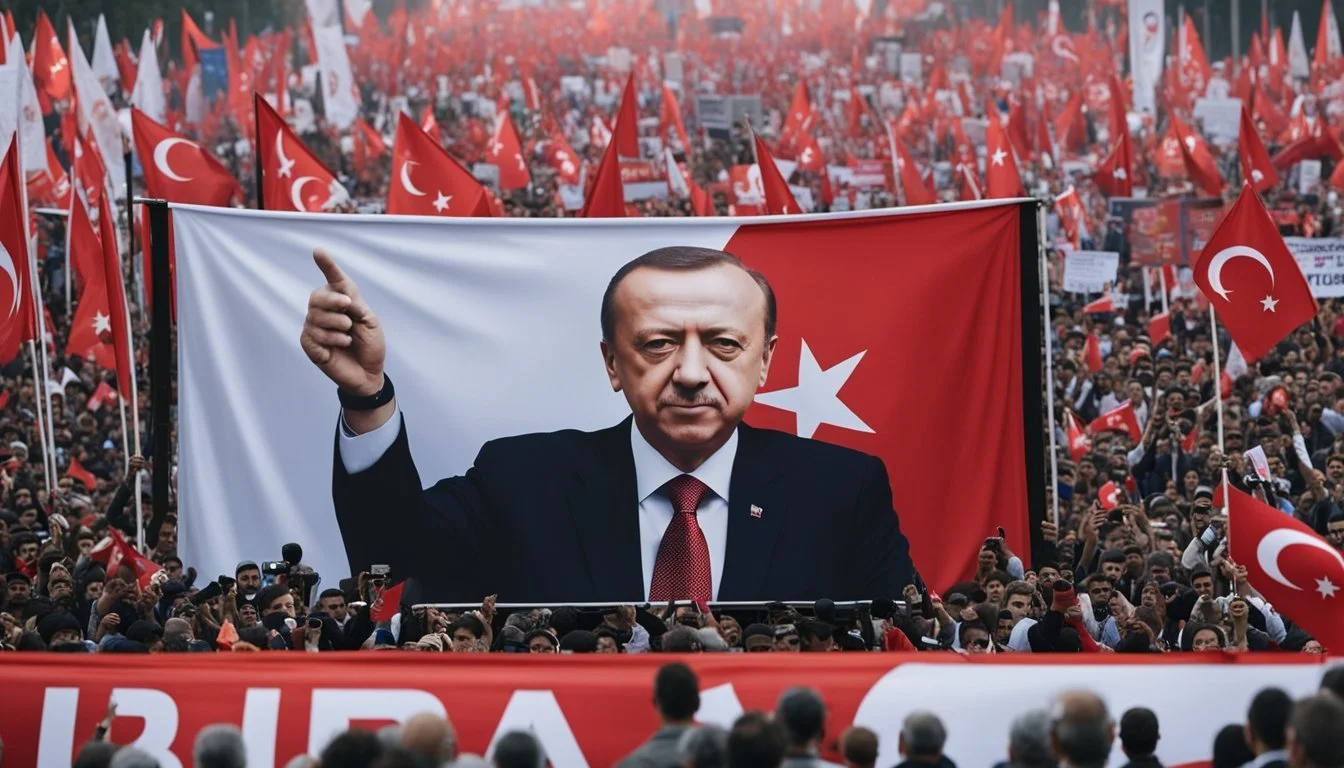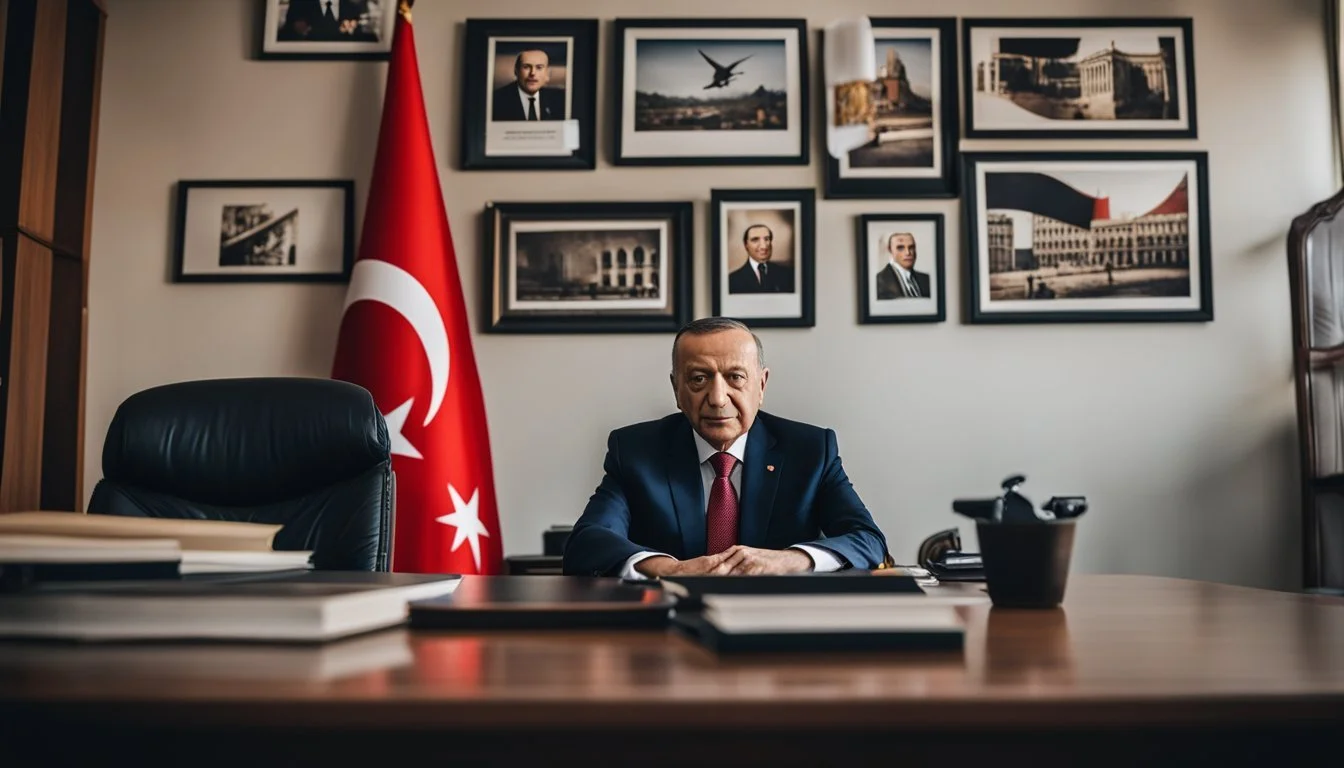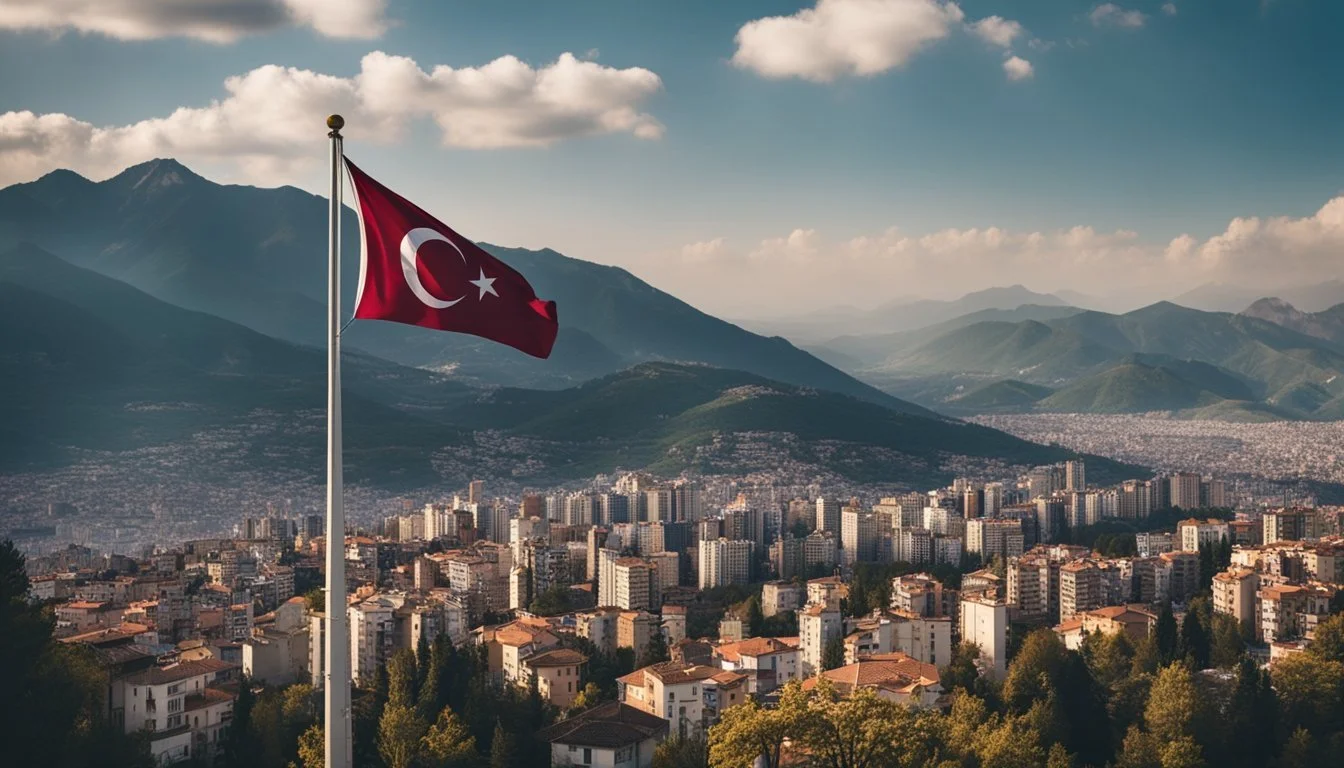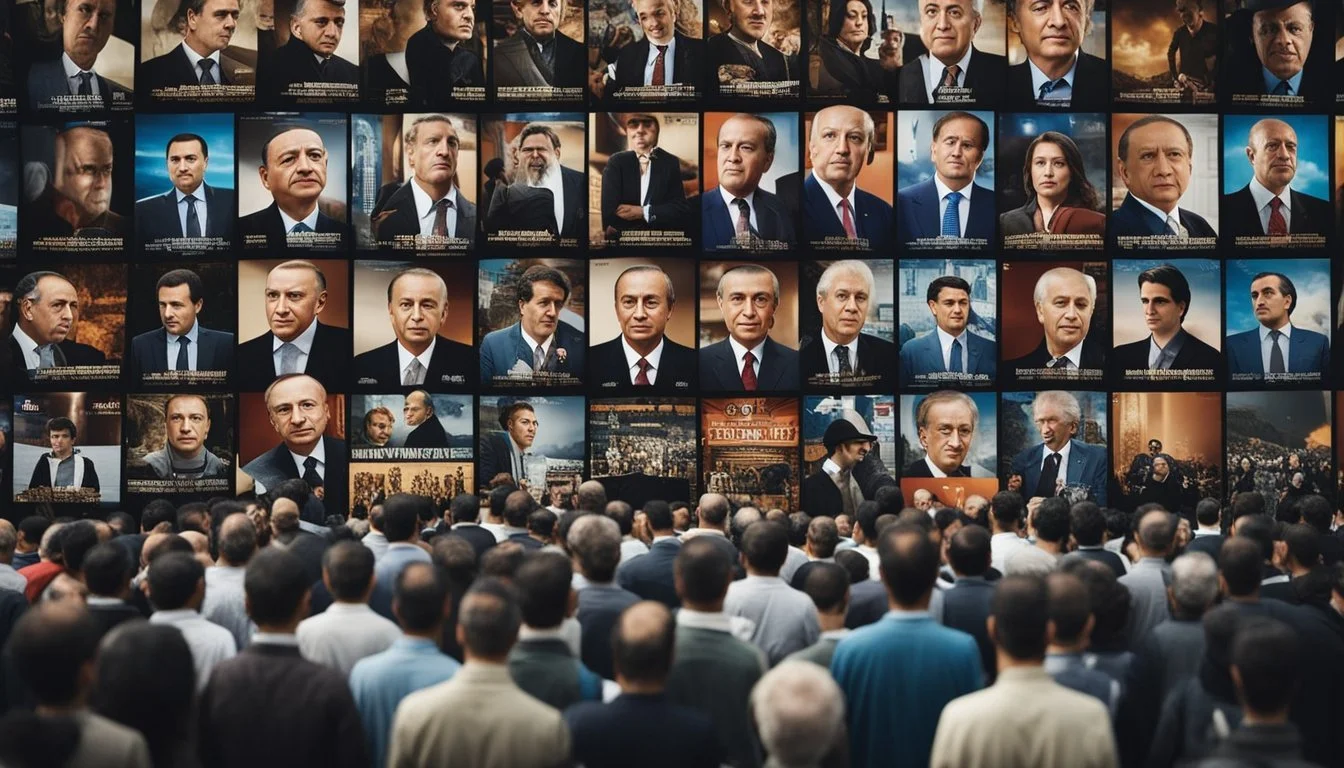15 Films Investigating the Controversial Presidency of Recep Tayyip Erdoğan
A Cinematic Exploration
The presidency of Recep Tayyip Erdoğan has been one of the most polarizing eras in Turkish history, marked by significant political, social, and economic transformations. This list explores a range of films that provide a multifaceted look into his controversial tenure, offering various perspectives and insights into his governance and the impact on Turkey's society.
These films aim not only to document Erdoğan's rise to power and the implementation of his policies but also to provoke thought and discussion about the broader implications of his leadership. By examining a diverse array of cinematic works, viewers can gain a deeper understanding of how Erdoğan's presidency has been perceived and represented in both Turkish and international media.
1) Winter Sleep by Nuri Bilge Ceylan (2014)
"Winter Sleep" is a 2014 Turkish drama film directed by Nuri Bilge Ceylan. The film is adapted from the novella "The Wife" by Anton Chekhov and a subplot from Fyodor Dostoyevsky's "The Brothers Karamazov."
Set in the stunning landscapes of Anatolia, the film dives into the lives of its characters, exploring the deep social divisions in Turkey. The story revolves around Aydın, a former actor who runs a small hotel and grapples with his shifting roles in his family and community.
The film won the prestigious Palme d'Or at the Cannes Film Festival, cementing its place in contemporary cinema. Nuri Bilge Ceylan's direction masterfully captures the tension and undercurrents in Turkish society, making it a poignant piece on power dynamics and societal expectations.
"Winter Sleep" is noted for its compelling narrative, rich in introspection and atmospheric details. Ceylan's work shines in portraying the complexities of human emotions and relationships.
For more information, you can visit the Wikipedia page on Winter Sleep.
2) Mustang by Deniz Gamze Ergüven (2015)
Mustang, directed by Deniz Gamze Ergüven, focuses on the lives of five sisters in a Turkish village. They face strict societal norms and oppressive family controls.
The film starts with the sisters playing innocently with local boys in the sea. This behavior is deemed inappropriate, leading to severe restrictions placed on their freedom.
As the sisters contend with the constraints, the film vividly portrays the challenges faced by young girls in a conservative society. Each sister displays a unique form of resistance against the oppressive traditions imposed on them.
Ergüven combines her own Turkish-French heritage to explore the sexual gaze and societal pressures faced by Turkish women. Her personal background adds depth to the narrative.
Mustang has received widespread acclaim for its portrayal of patriarchy and women's resilience. The film's narrative serves as a critique of restrictive cultural norms in Turkey.
For more information, visit the IMDb page for Mustang.
3) The Edge of Heaven by Fatih Akin (2007)
Fatih Akin's "The Edge of Heaven" explores connections between Germany and Turkey through intertwined narratives of loss and redemption.
Released in 2007, the film delves into the lives of its complex characters as they navigate cultural and emotional landscapes.
The film opens with a scene depicting a man traveling through Turkey, which sets the tone for its transnational theme.
It follows Nejat, a Turkish-German professor, who travels to Istanbul to find Ayten, the daughter of his father's former girlfriend.
The narrative weaves through various subplots, exploring themes of family, identity, and belonging.
Akin's direction is notable for its nuanced portrayal of characters caught between different worlds.
"The Edge of Heaven" won the Prix du scénario at the 2007 Cannes Film Festival and was Germany's entry for Best Foreign Language Film at the Oscars.
4) Once Upon a Time in Anatolia by Nuri Bilge Ceylan (2011)
Nuri Bilge Ceylan's film "Once Upon a Time in Anatolia" provides an introspective look at the complexities of human nature against the backdrop of the Anatolian steppes.
Released in 2011, the drama follows a group of men searching for a buried body. This search becomes a meditative journey reflecting on themes of guilt, responsibility, and existential angst.
The film's meticulous pacing and cinematography offer an almost poetic realism. The vast, desolate landscape parallels the inner turmoil of the characters, enhancing the film's contemplative mood.
This movie, while not directly addressing Erdoğan's presidency, captures the societal and psychological undercurrents of Turkey during his era. It highlights the blend of modernity and tradition, a recurring theme in the country's socio-political landscape.
Ceylan's ability to weave complex narratives through seemingly simple plots places "Once Upon a Time in Anatolia" among the notable works exploring Turkey's intricate societal layers. This nuanced portrayal warrants its place in any discussion about contemporary Turkish cinema.
Explore more about the film on Wikipedia or IMDb.
5) Sivas by Kaan Müjdeci (2014)
"Sivas" is a 2014 Turkish drama directed by Kaan Müjdeci. The film explores rural life through the eyes of an eleven-year-old boy named Aslan. He develops a bond with a wounded fighting dog he finds abandoned in a ditch.
The story is set in the rugged landscape of Central Anatolia. It paints a gritty picture of traditional Turkish society. Through Aslan's experiences, the film comments on themes of loyalty, survival, and the struggles of growing up.
"Sivas" was selected to compete for the Golden Lion at the 71st Venice International Film Festival. It won the Special Jury Prize. This recognition highlights its impact on international audiences, despite its focus on a very localized Turkish setting.
The film's cast includes both professional and first-time actors, which gives it an authentic and raw atmosphere. This blend enhances the storytelling, making the characters' experiences more relatable and genuine.
While "Sivas" does not explicitly address the political climate under Recep Tayyip Erdoğan, it provides a social context that frames the everyday life of those affected by broader national policies. By capturing the challenges and simplicity of rural existence, it adds another layer to understanding contemporary Turkey.
For more information, visit IMDb or Wikipedia.
6) Bliss by Abdullah Oğuz (2007)
"Bliss" is a notable Turkish film directed by Abdullah Oğuz. The film was released in 2007 and has gathered significant acclaim for its storytelling and subject matter.
Adapted from a novel by Zulfu Livaneli, "Bliss" explores the harsh realities of honor killings in contemporary Turkey. The protagonist, Meryem, is a 17-year-old girl who is condemned to death by her community after being raped.
The film contrasts Turkey's modern urban life with its traditional rural customs. It highlights the ongoing conflict between progressive elements and conservative societal norms, echoing themes relevant to Recep Tayyip Erdoğan's era.
Through the narrative, "Bliss" sheds light on gender-based violence and the struggles for women's rights in Turkey. It underscores the broader cultural tensions that have been at the forefront during Erdoğan's presidency.
The film's critical reception emphasizes its importance in Turkish cinema, as it addresses controversial and pressing issues. "Bliss" won several awards and was screened at multiple international film festivals, reflecting its global impact.
For more information on "Bliss," visit IMDb.
7) The Butterfly's Dream by Yılmaz Erdoğan (2013)
"The Butterfly's Dream" is a Turkish drama film written and directed by Yılmaz Erdoğan.
Set in a small Turkish town during World War II, the film follows two young poets struggling with tuberculosis.
Their lives revolve around their poetry and the stark realities of their conditions.
The visual aesthetics of the film are particularly noteworthy, with a reported production budget of $15 million.
This makes it one of the most expensive Turkish films at the time.
The film was Turkey's submission for the Best Foreign Language Film at the 86th Academy Awards.
Though it did not receive a nomination, it gained significant international attention.
The film’s score, composed by Rahman Altın, won the "World Soundtrack Awards - Public Choice Award" at the 40th Film Fest Gent.
The Butterfly's Dream offers a poignant look into the artistic and personal struggles of its characters.
8) The Water Diviner by Russell Crowe (2014)
"The Water Diviner," directed by Russell Crowe, marks his directorial debut. The film's plot follows an Australian farmer, Joshua Connor, who travels to Turkey post-World War I to locate his three sons who went missing after the Battle of Gallipoli.
The film blends genres, incorporating elements of historical drama, adventure, and romance. Crowe not only directs but also stars in the lead role, supported by Olga Kurylenko and Yilmaz Erdogan.
Although "The Water Diviner" primarily explores themes of loss and reconciliation, it also provides a lens into the complex historical context of post-war Turkey. The narrative's setting offers viewers a glimpse of the country's landscape and societal conditions during this turbulent period.
For more information on the film, follow this link to IMDb.
9) Butterflies by Tolga Karaçelik (2018)
Butterflies, directed by Tolga Karaçelik, tells the story of three estranged siblings, Cemal, Kenan, and Suzan, who reunite after many years apart. After receiving news about their father's death, they return to their small hometown in Turkey.
The film explores family dynamics and complex relationships. Karaçelik skillfully balances drama and comedy to create a unique cinematic experience. The actors, Tolga Tekin, Bartu Küçükçağlayan, and Tuğçe Altuğ, deliver strong performances that highlight the siblings' individual struggles and interactions.
Set against the backdrop of a rural Turkish village, Butterflies examines themes of reconciliation and rediscovery. The narrative interweaves personal stories with broader societal issues, subtly reflecting on contemporary Turkey.
For more information on Butterflies, visit its Wikipedia page.
10) The Valley of the Wolves: Palestine by Zübeyr Şaşmaz (2011)
"Valley of the Wolves: Palestine," directed by Zübeyr Şaşmaz, is an action film from Turkey. The film stars Necati Şaşmaz, Nur Fettahoğlu, and Erdal Beşikçioğlu. Set against the backdrop of the Gaza flotilla raid, the movie follows a Turkish commando team's mission in Palestine.
The protagonist, Polat Alemdar, leads the team to track down and eliminate the Israeli military commander responsible for the raid. This narrative creates a space to explore and criticize geopolitical tensions.
The film is known for its controversial portrayal of the Israeli-Palestinian conflict. Its release sparked significant discussions and debates about political representation and bias in cinema.
"Valley of the Wolves: Palestine" adds to the larger conversation about Erdoğan's presidency. It reflects on the complex and often contentious relationships between Turkey, Israel, and Palestine during his tenure.
For more information, visit Wikipedia.
11) Nowhere in Africa by Caroline Link (2001)
Caroline Link's Nowhere in Africa is a German drama film released in 2001. It is based on Stefanie Zweig's 1995 autobiographical novel of the same name. The film portrays the story of a German-Jewish family who emigrates to rural Kenya in 1938 to escape Nazi persecution in Germany.
The film explores the family's struggles and adjustments as they adapt to their new life in Africa. Walter Redlich, a Jewish lawyer, along with his wife Jettel and their daughter Regina, finds themselves in a vastly different cultural and social environment. The family's resilience and adaptation to their new circumstances form the crux of the narrative.
Directed by Caroline Link, the film received critical acclaim and won the Academy Award for Best Foreign Language Film. The performances, particularly those of Juliane Köhler and Merab Ninidze, have been widely praised.
Nowhere in Africa tackles themes of displacement, survival, and cultural adaptation, making it a compelling watch. It serves as a poignant reminder of the challenges faced by refugees and the resilience of the human spirit.
For more information, visit IMDb or Wikipedia.
12) My Father and My Son by Çağan Irmak (2005)
"My Father and My Son" directed by Çağan Irmak is a notable Turkish drama film.
The story focuses on a family torn apart by the 1980 Turkish coup d'état. The protagonist is a left-wing journalist whose wife's death during childbirth prompts his return to his estranged family.
The film portrays the complexities and emotional struggles of reconciling with his father. The setting is a village farm, which adds authenticity to the narrative.
The film gained significant attention for its portrayal of family and political activism. It became one of the highest-grossing Turkish films in history.
For more information, visit My Father and My Son on IMDb.
13) Emin Alper's A Tale of Three Sisters (2019)
Emin Alper's "A Tale of Three Sisters" is a compelling family drama set in a secluded village in the mountains of northeastern Turkey.
The film revolves around three peasant sisters—Reyhan, Nurhan, and Havva—who return to their father's home after their foster families send them back.
Emin Alper crafts a narrative that explores themes of sibling rivalry, familial love, and the harsh realities of peasant life.
The film's setting in a picturesque village amid snowy mountain peaks adds a visually striking backdrop to the story. Alper's direction and script invite the audience into an oddly theatrical yet intimate portrayal of the sisters' lives.
"A Tale of Three Sisters" had its world premiere at the Berlin International Film Festival, receiving critical acclaim for its storytelling and visual composition.
The film also captures political undercurrents subtly, reflecting the director's perspective on contemporary Turkish society under Recep Tayyip Erdoğan's presidency.
Find more information about A Tale of Three Sisters on IMDb.
14) 10 to 11 by Pelin Esmer (2009)
"10 to 11" is a drama film directed by Pelin Esmer. The film is loosely based on the experiences of Esmer's uncle, Mithat Esmer, who also stars in it, portraying an elderly collector in Istanbul.
Mithat lives in a rundown apartment building threatened by demolition. His collection has overtaken his living space, symbolizing a fight against losing cultural heritage.
The film explores themes of memory, preservation, and cultural destruction. Mithat's dedication to his collection contrasts sharply with the neglect and decay surrounding him.
This nuanced narrative, blending fiction and reality, poignantly reflects the tension between old and new in modern Turkey. It’s an intimate look at how personal histories can be overshadowed by urban transformation and modernization.
More about 10 to 11 on Wikipedia
15) Tepenin Ardı by Emin Alper (2012)
"Tepenin Ardı" (Beyond the Hill) is a Turkish drama film directed by Emin Alper.
Set in the quiet foothills of Turkey, the film follows Faik, the head of a farming family. When his sons visit, tensions rise as Faik expresses his suspicions about nomads allegedly trespassing on his land.
The film explores the theme of internal and external conflicts, illustrating a family's struggle against perceived and real threats.
Emin Alper addresses the broader sociopolitical climate in Turkey, reflecting on the pervasive mindset of "enemies all around us." This allegorical approach lends the film a universal significance beyond its local context.
For more information on "Tepenin Ardı," visit IMDb or Wikipedia.
Political Background of Recep Tayyip Erdoğan
Recep Tayyip Erdoğan, a central figure in Turkish politics, has played a significant role in shaping the country's modern political landscape. His journey from humble beginnings to the presidency illustrates his enduring impact on Turkey.
Early Life and Rise to Power
Recep Tayyip Erdoğan was born on February 26, 1954, in Beyoğlu, Istanbul. Growing up in a working-class family, he attended an Islamic school before joining Istanbul's Aksaray Academy. Following his education, Erdoğan was active in student leadership and local politics, which set the stage for his future political career.
His early political career began as mayor of Istanbul from 1994 to 1998. Erdoğan's tenure as mayor was marked by efforts to modernize the city and improve infrastructure, gaining him widespread recognition. In 2001, he co-founded the Justice and Development Party (AKP), which rose to prominence quickly. By 2003, Erdoğan became Turkey's Prime Minister, a role he served in until 2014 before ascending to the presidency. His grassroots support and strategic political maneuvers have been key to his enduring influence.
Key Political Achievements
Erdoğan's political achievements are numerous and often contentious. Domestically, he implemented significant economic reforms that led to a period of substantial growth. His policies focused on privatization, enhancing infrastructure, and improving healthcare, which has garnered both praise and criticism.
Erdoğan also played a decisive role in Turkey’s constitution by transitioning the country from a parliamentary to a presidential system in 2018. This shift expanded his powers and altered the political framework. Internationally, his tenure has been marked by a more assertive foreign policy, including increased involvement in regional conflicts and a more prominent role in global diplomatic circles.
These actions have firmly established Erdoğan as a pivotal and often polarizing figure in both Turkish and international politics.
Media and Public Perception
Media and public perception have played critical roles in shaping views about Recep Tayyip Erdoğan’s presidency. His administration's approach to media has sparked international reactions and a variety of criticisms.
Censorship and Control
Erdoğan's relationship with the media is characterized by significant control and censorship. Numerous media outlets that opposed his administration have been shut down. Reporters Without Borders noted biased coverage in Turkey’s recent elections, pointing to government influence.
Independent journalism faces constant threats. Journalists critical of the government have been arrested, creating a climate of fear and self-censorship. State TV and pro-government newspapers dominate, drowning out dissenting voices. This censorship affects public perception, limiting access to impartial news and shaping favorable views for Erdoğan.
International Reactions and Criticism
Globally, Erdoğan’s media control has drawn sharp criticism. European countries and international watchdogs frequently discuss Turkey's declining press freedom. In a notable incident, Erdoğan kept Vladimir Putin waiting during a summit, seen by some as an act of defiance underscored by strained relations with Russia.
The biased media landscape complicates Turkey’s relations with its NATO allies, who stress democratic values and freedom of speech. International media coverage often highlights these issues, influencing global public perception of Erdoğan’s presidency. Consequently, his administration's tight grip on media continues to be a contentious and debated topic on the world stage.
Impact on Turkish Society
Recep Tayyip Erdoğan's presidency has brought significant changes to Turkey. These transformations have shaped the country's economy and its social and cultural landscape.
Economic Policies and Effects
Erdoğan's tenure has seen numerous economic reforms. He initially promoted infrastructural development, resulting in significant growth. Large-scale projects like new airports and bridges are prime examples.
However, Turkey has faced economic instability. High inflation rates, currency depreciation, and increased national debt have impacted everyday life. Policies aiming to control interest rates led to financial strains.
Erdoğan's approach to foreign investments has fluctuated. A focus on domestic production clashed with global trade dynamics, affecting investor confidence. The tourism industry also saw fluctuations due to political unrest, directly influencing economic stability.
Social and Cultural Changes
Erdoğan's influence extends beyond economics. His government has promoted conservative values, impacting education and media. Revisions in school curriculums emphasize religious studies, while secular content has decreased. Media censorship has intensified, limiting critical discourse.
Public spaces and cultural events now align more with conservative norms. Gender roles and family structures experience shifts, with policies supporting traditional views. The crackdown on free speech and political dissent has narrowed the space for social activism.
Erdoğan's policies have also fostered nationalism. This rising sentiment influences public perception, often polarizing society. Increasingly, Turkish identity intertwines with Erdoğan's political ideology, reshaping the nation's cultural landscape.


